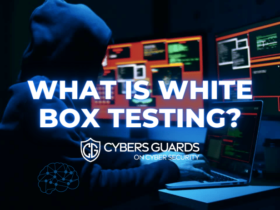Security in the business sector is fundamental. With more developments in technology come more sophisticated ways to attack a company, which can cause financial losses, loss of trust among customers, and loss of important data. Established companies can come back from any threats comfortably, but these can be very devastating for small businesses.
The rise of cybercrime has necessitated the need to have a proper security protocol and policies to help protect your business. Different types of businesses will require varied security systems, depending on the size and nature of operations. In Australia, both large and small businesses can get customized cyber security services Sydney to help identify and mitigate risks as well as scale their security efforts.
Elements Of Custom IT Security
It’s possible to customize your IT security according to your needs and financial ability. This allows all types of businesses to have a secure system regardless of their size. A custom security system has the following elements:
Unique Security Strategies
Each business will require different security needs, depending on their operations. For example, an electronic supplier won’t require the same amount of security as a defense contractor. Therefore, your IT security should be unique to your business in order to address your needs.
Even though some of the securities such as passwords are general and can apply to different businesses, there are some finer details that you should incorporate. For instance, you can require a combination of numbers, letters, and special characters on passwords to increase security.
Continuous Monitoring
A sound IT security should offer continuous monitoring of your system. Risks and attacks are unpredictable and can happen anytime, so your custom security system should identify when it happens and from what point of the system.
When updating your security features, you should ensure that all the patches are installed and configured correctly to avoid loopholes. A lack of continuous monitoring leaves your operations vulnerable to attacks as you might not identify any risk.
Well-Defined Security Protocol
Your customized security system should have a well-defined security protocol with a hierarchical pattern that defines how data moves within the organization. For example, there’s some information that the junior staff in the organization can share without requiring any approval from the management. However, some information will require approval first before it can be shared.
Moreover, the management should identify with whom the information is shared and which team member shared the information. The security system should incorporate passwords or biometric access, so only authorized personnel can access and share any information.
If any task needs approval, the security system should send it to the right employee and not just any other person. This will help boost security measures as it ensures the validity and authenticity of every task. Therefore, any custom IT security should have it.
Good Analytics
Big data has become an essential component in cybersecurity as you can use data analytics to know potential risks. A good IT system should incorporate artificial intelligence (AI) to identify and mitigate risks. The system can use the details to know the weak points in the business and areas that were attacked before. Data can also be used to design proper measures to curb any future attack.
Proper Coverage
A custom IT system should cover all kinds of threats that can face the business. Most security threats facing a business are external such as ransomware and phishing attack. However, there are also some internal threats such as negligence, misconfiguration, and malicious activities such as theft.
Your custom IT system should have an element that alerts and protects you and other users if there’s a mistake. For example, you should be notified in case of an unauthorized login attempt and also be notified if your business has been compromised.
Compliance
Every state, department, or regulatory body has specific security standards that businesses should comply with. These differ depending on the regulatory body, so you should know what’s required of your business. Your custom IT system should meet these compliance requirements at all times. Audits can be conducted to ascertain business compliance to security, and your system should pass the audit.
Conclusion
Getting a proper IT security system in your business will come with several benefits. A proper security system should constitute several elements such as compliance, proper coverage, and the use of data analytics. When customizing your security system, you should incorporate these elements. You can contract IT experts to help develop a system that’ll continuously protect your business against any attack.











Leave a Reply